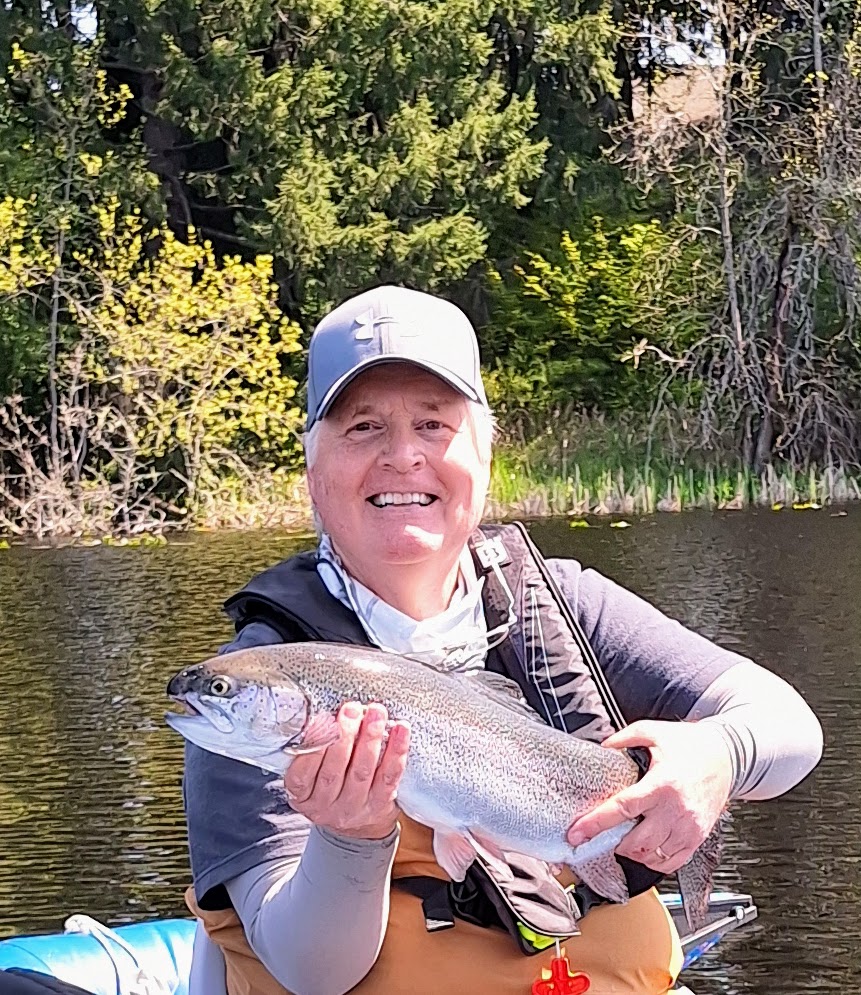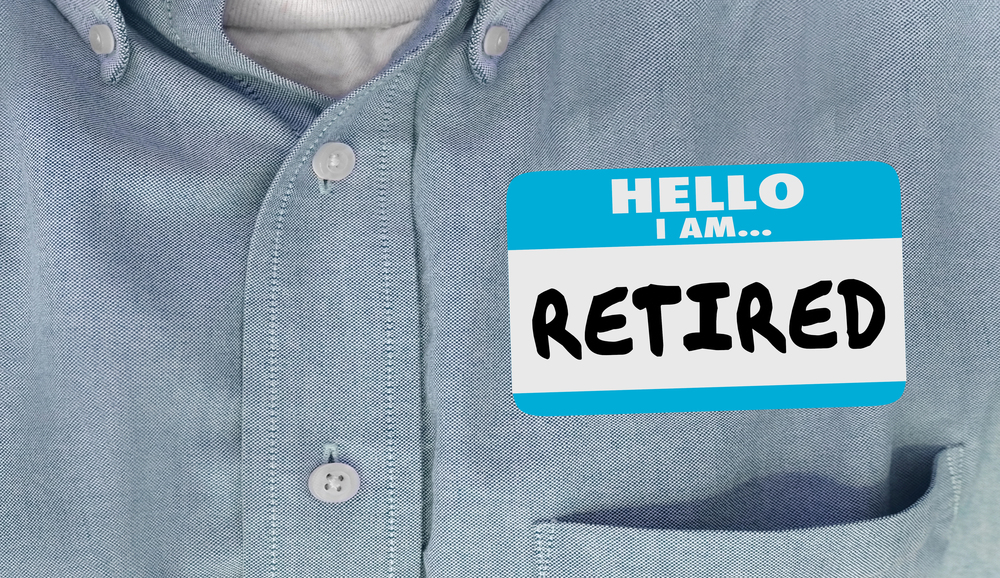Retirement Regrets: I Wasted My First Year of Freedom

Picture this: You’ve spent decades working toward retirement, imagining lazy mornings and endless hobbies. Then reality arrives. Freedom isn’t free – especially when you’re unprepared for its hidden costs.
That first year after leaving my job felt like stepping into quicksand. Days blurred without structure. Projects I’d planned for years gathered dust. Time became my frenemy, stretching endlessly yet slipping through my fingers.
If you prefer, you can listen to a "podcast style" version of this blog post:
Decades of routine left me ill-equipped for open-ended days. My old work ethic clashed with this new phase, creating guilt when I wasn’t “productive.” Unexpected expenses – from healthcare surprises to home repairs – added financial stress to emotional whiplash.
But here’s the silver lining: These stumbles taught me more than any career ever did. This journey isn’t about regrets. It’s about turning hindsight into your superpower – whether you’re approaching retirement or already navigating its choppy waters.
Let’s unpack what nobody tells you about that critical transition year. The lessons? They’re messy, real, and ultimately transformative.

Reflections on the First Year of Retirement
The first year of retirement isn’t what brochures advertise. Dreams of perpetual relaxation often collide with the need for intentional planning. Here’s what unfolds when expectations meet reality.
Assessing Pre-Retirement Expectations
Many envision retirement as an endless vacation. Weeks would flow effortlessly, filled with hobbies and leisurely lunches. Financial plans seemed solid – Social Security checks arriving like clockwork, savings comfortably padding the gaps.
Reality paints a different picture. Days without structure become disorienting. That novel you planned to write? It stares back from a dusty desk. Projects require self-discipline you didn’t know you’d need.
Surprising First-Year Realities
Money behaves differently when paychecks stop. Unexpected expenses – a roof repair, dental emergency – test even careful budgets.
| Expectation | Reality | Adjustment |
|---|---|---|
| Endless free time | Need for daily structure | Create morning routines |
| Fixed income security | Variable expenses | Build emergency fund |
| Slow-paced years | Time accelerates | Track meaningful goals |
People often underestimate how relationships shift. Work friendships fade faster than expected. Building new social connections becomes crucial yet challenging. The passage of years feels accelerated – weeks blur without work’s milestones.
Adapting requires mental flexibility. What initially feels like failure becomes growth. Priorities sharpen. You learn to measure success differently – not by productivity, but by purpose.
How I wasted my first year of retirement
That initial glow of freedom fades fast when your calendar stays empty. What began as excitement morphed into quiet panic. My carefully crafted retirement blueprint? It crumbled faster than a sandcastle at high tide.
Initial Expectations vs. Reality
I’d imagined days filled with fly fishing, photography outings and road trips. Instead, Netflix became my unintentional companion. My financial assumptions proved equally shaky.
While I had planned carefully, you just don't know what you don't know. In other words, retirement was more expensive than I thought it would be. I quickly learned that retirement isn’t a destination – it’s a skill you develop through trial and error.
Key Missteps in Planning
My corporate mindset became my worst enemy. Productivity metrics left me guilt-ridden when reading novels instead of crossing tasks off lists. Budget spreadsheets failed to account for inflation’s teeth gnawing at a fixed income.
Work habits die hard. For six months, I’d wake at 5:30 AM, even though I had no meetings to fill mornings. Friends still employed grew distant, their lunch breaks now synced with my empty afternoons.
Luckily, I had my YouTube channel as a small side hustle which gave me a way to feel more productive and earn some fun money.
The Freedom Illusion and Its Pitfalls
The dream of endless leisure can quickly turn into a maze. That "perfect" retirement life you envisioned? It needs scaffolding to stay upright.
Balancing Freedom and Structure
Mornings once ruled by alarms can quickly become wasted. I’d linger over coffee until noon, then wonder where the day went. Discipline, not just desire, shapes meaningful retirement years. A neighbor shared her secret: "Treat leisure like a part-time job."
| Challenge | Solution | Result |
|---|---|---|
| Morning drift | 15-minute coffee + news ritual | Creates momentum |
| Afternoon slumps | Scheduled walks with friends | Boosts energy |
| Evening restlessness | Hobby hours (6-7 PM) | Builds satisfaction |
Managing Unstructured Time
Retirement’s paradox: Too little structure breeds stress. Too much feels like self-imposed prison. The sweet spot? Flexible frameworks. Block mornings for passion projects, afternoons for spontaneity. Track progress through experiences, not spreadsheets.
"Empty hours are quicksand – they’ll swallow you whole if you don’t build stepping stones."
After literally wasting a year of retirement I quickly learned building structure into my days was a way to lower my stress.
If you are a person that lived by strict schedules in your former professional life, building a loose schedule to follow in your retired life will definitely help you through this life transition.
Health, Hobbies, and Pursuing Passions in Retirement
Retirement cracked open a door I’d kept shut for decades – the chance to prioritize wellness over deadlines. What began as tentative steps toward self-care evolved into life-changing habits. Here’s how blending movement with creativity reshaped my days.

Embracing a Healthier Lifestyle
Morning walks replaced rush-hour commutes. Simple swaps – stairs instead of elevators, homemade meals over takeout – added up. Consistency trumps intensity in retirement health journeys.
| Weekly Routine | Time Investment | Benefit |
|---|---|---|
| Yoga sessions | 3x30 minutes | Improved flexibility |
| Family walks | 4x45 minutes | Strengthened bonds |
| Meal prepping | 2 hours weekly | Healthier eating |
"Movement became my medicine cabinet – no copays required."
Rediscovering Hobbies and Interests
Dusty camera lenses found new purpose. Working in the garden was a stress reducer now that I had time to do it at my leisure. Weekly outings with grandkids kept me busy.
Three unexpected benefits emerged:
- Creative projects reduced stress better than any pill
- Shared hobbies deepened family connections
- Learning new skills kept my brain nimble
The magic formula? Structure without rigidity. Mornings for exercise, afternoons for passions, evenings for connection. Retirement’s gift isn’t endless time – it’s intentional time.
The Dark Side of Early Retirement
Early retirement glitters like a gold medal – until the polish wears off. What begins as liberation can morph into isolation when workplace connections vanish overnight. The absence of watercooler chats and team lunches leaves a hollow space many don’t anticipate.
Emotional and Social Challenges
Leaving a stable job often triggers identity erosion. Colleagues who filled your calendar for decades become distant memories. A neighbor shared her shock: “After 30 years as ‘the marketing director,’ I suddenly became ‘Bob’s wife’ at social events.”
| Pre-Retirement | Post-Retirement | Solution |
|---|---|---|
| Daily coworker banter | Silent mornings | Join hobby groups |
| Clear professional purpose | Drifting days | Volunteer commitments |
| Built-in social network | Friendship droughts | Community classes |
Purpose becomes slippery without work’s scaffolding. One Tuesday, I caught myself staring at laundry – my only “achievement” by noon. Age amplifies the sting when peers still climb career ladders while you’re home reorganizing spice racks.
“Retirement stripped away my title and left me wondering – who am I now?”
Relationships shift unexpectedly. Friends still employed can’t meet for midday coffee. Spouses may clash over mismatched daily rhythms. A golf buddy confessed he’d started driving to his old office parking lot just to feel connected.
These challenges aren’t failures – they’re growing pains. Recognizing them early helps build bridges before isolation sets in. The key lies in creating new anchors before the old ones disappear.
Navigating Part-Time Work and Continued Productivity
Part-time work became my unexpected lifeline during retirement’s rocky transition. I started a YouTube Channel that dovetailed nicely with my former professional experience. This was a great way to get some extra fun money and feel (loosely) connected to my former work life.
Transitioning from Full-Time to Part-Time Engagement
The thing to bear in mind with part-time work is you could end up a slave to a manager's schedule. This means that the perfect golf day or fishing weather may not coincide with your part time work. If you can try and fomulate a part-time job where you have some schedule control.
| Freelance Work | Consulting | Seasonal Jobs |
|---|---|---|
| Flexible hours | Higher hourly rates | Short-term commitments |
| Varied projects | Industry expertise use | Social interaction boost |
"Working 12 hours weekly gave me structure without shackles – like training wheels for retirement."
Three strategies made the shift successful:
- Set non-negotiable leisure days (Mondays/Wednesdays)
- Negotiated remote options to avoid commuting
- Tracked earnings separately for tax efficiency
Supplemental income can cover surprise expenses while preserving savings. More importantly, projects kept problem-solving muscles active. Colleagues became friends who occasionally met for coffee instead of Zoom calls.
Balancing paid work with personal time requires trial and error. Thursdays became "adventure days" – museum visits or grandkid outings. Fridays morphed into creative sessions for woodworking or writing. This hybrid approach smoothed the identity shift from executive to retiree.
Social Connections and Redefining Purpose
Retirement’s silent challenge isn’t money – it’s rebuilding your social ecosystem from scratch. Workplace camaraderie vanishes overnight, leaving gaps harder to fill than any budget shortfall.
Rebuilding Social Networks After Leaving Work
Wednesday mornings hit hardest. That’s when my team used to gather for bagels and brainstorming. Six months post-retirement, I realized friendships need cultivation – they don’t autopilot like payroll deposits.
Reconnecting with college buddies became my first step. Joining a local fly fishing club became a way of meeting new fishing buddies. Intentionality became my new social currency.
| Challenge | Action | Result |
|---|---|---|
| Lost work friends | Joined book club | 3 new close connections |
| Family distance | Scheduled weekly calls | Deeper conversations |
| Purpose vacuum | Volunteered at food bank | Built intergenerational bonds |
“Retirement relationships are like gardens – they thrive when you plant seeds regularly.”
Volunteering reshaped my calendar. Tutoring kids at the community center gave me fresh energy. Those Tuesday afternoons now feel more meaningful than any board meeting ever did.
Key lessons emerged:
- Say “yes” to awkward first invites
- Mix old and new connections
- Measure success by laughter, not LinkedIn likes
Purpose isn’t found – it’s built through small, consistent acts of engagement. Your people are out there. Sometimes they’re just waiting for you to make the first move.
Travel Realities and the Cost of Adventure
The real cost of traveling meets wallet reality in retirement’s golden years. Dreams of globetrotting often crash into price tags that don’t match pension checks. Those Instagram-perfect vacations? They hide a maze of logistics and trade-offs.

The one thing about traveling is you are making memories for the time in your life where travel is no longer practical due to age and health issues. If you can't afford elaborate, expensive trips, now is the time to see all of the places within driving range you've wondered about but didn't have the time to see.
Budget Travel Considerations
Airfare costs shocked me more than airport security lines. That European river cruise I’d bookmarked? Priced like a luxury sedan. Smart travel requires ruthless prioritization. Off-season trips and loyalty programs became my new best friends.
Alternative lodging slashed costs. House swapping with retirees in other states cut hotel bills to zero. Weekly farmers’ markets replaced expensive restaurants – tastier and more authentic.
Adjusting Expectations for a Travel Bucket List
My "see the world" list shrank to "see what’s feasible." Climbing Machu Picchu at 68? My knees voted no. Instead, I discovered micro-adventures – exploring hidden trails in state parks, attending local cultural festivals.
"Adventure isn’t canceled – it’s redefined. Sometimes the best views are three counties away."
Three budget-friendly strategies emerged:
- Group tours for seniors with medical support
- Museum reciprocal membership networks
- Credit card points for flight upgrades
Physical energy wanes faster than savings accounts. Morning explorations with afternoon naps became the rhythm. Travel now means savoring moments, not stamping passports.
Conclusion
Looking back, that initial chapter taught me more about living than decades of work ever did. Missed budgets and quiet afternoons revealed truths no seminar ever covered: retirement thrives on flexible structure, not rigid plans. Those empty hours? They’re raw material—not enemies.
Three realizations reshaped everything. Financial buffers matter more than perfect spreadsheets. Scheduled activities prevent days from dissolving. Social bonds require nurturing like perennial gardens. Each stumble became a stepping stone toward intentional living.
Time’s value shifts when you’re no longer trading it for paychecks. I learned to view hours as currency for experiences rather than productivity metrics. What people want in later years isn’t endless leisure—it’s purpose that adapts as they do.
Let my miscalculations light your path. Build margin into budgets before surprises strike. Design weeks blending spontaneity with meaningful routines. Most importantly? Let go of chasing some idealized version of freedom.
Retirement becomes richer when we approach it as an evolving journey—not a final destination. The magic lies not in avoiding missteps, but in growing wiser with each course correction. Your best years aren’t behind you; they’re waiting to be shaped, one intentional choice at a time.
Additional Resources on this Topic
Academic Studies
Ekerdt, David J. & Koss, Catheryn. (2016). "The Task of Time in Retirement."
This study specifically examines how the removal of work's time structure impacts retirees, aligning perfectly with your observations about the challenges of unstructured time and the importance of creating new routines.
Online Resources
National Institute on Aging: Loneliness and Social Isolation
The NIA provides evidence-based strategies for maintaining social connections in retirement, including tips for building new relationships and strengthening existing ones to combat isolation.
AARP Foundation's Connect2Affect
This comprehensive resource helps older adults assess their risk for social isolation and offers concrete tools to build a stronger social network, particularly valuable for those transitioning from workplace relationships to retirement connections.
Life Transitions and Feeling Lonely
AARP Foundation provides practical guidance on managing emotional challenges during major life transitions like retirement, with strategies for deepening social connections and improving overall wellbeing.
Recommended Books
Schlossberg, Nancy K. "Revitalizing Retirement: Reshaping Your Identity, Relationships, and Purpose."
Written by a counseling psychologist, this book addresses the psychological aspects of retirement adjustment, offering practical frameworks for rebuilding identity and finding new purpose—perfect for readers who related to your identity struggles.
Hyrum W. Smith. "Purposeful Retirement: How to Bring Happiness and Meaning to Your Retirement."
This practical guide focuses on creating meaning and structure after leaving the workforce, with exercises to help readers identify passions and develop routines that make retirement fulfilling rather than aimless.
Bordia, Prashant et al. "Retiring: Creating a Life That Works for You."
Based on extensive research on role identity in retirement transitions, this book offers nuanced insights and practical advice on the psychological and social restructuring aspects of retirement that align perfectly with the challenges you described.
Multimedia Resources
Podcasts
A Wiser Retirement Podcast: "Finding Purpose in Life After Retirement"
This episode features insights from Tara Arnold, PhD, on developing new sources of purpose and meaning after leaving the workforce, with practical exercises for identifying what truly matters in this new life stage.
Humans vs Retirement: "The Four Phases of Retirement with Dr. Riley Moynes"
Dr. Riley Moynes walks listeners through the emotional, psychological, and personal transitions that retirees face and offers an actionable framework to navigate post-career life successfully.
TED Talks
"Retirement: Isn't That for Old People?" by Michelle Silver
Silver challenges conventional retirement thinking and discusses how our understanding of this life stage needs to evolve as people live longer and healthier lives, offering fresh perspectives on creating meaningful post-career identities.
YouTube Videos
"One's Retired. One's Not. How to Survive the Retirement Transition"
This practical video addresses the common situation where one partner retires while the other continues working, offering strategies for navigating the relationship adjustments this creates.
"Making a Successful Transition into Retirement with Joe Casey"
Joe Casey provides actionable advice on creating structure and finding purpose in retirement, with special emphasis on maintaining social connections and developing new routines—directly addressing the challenges you described in your blog.



